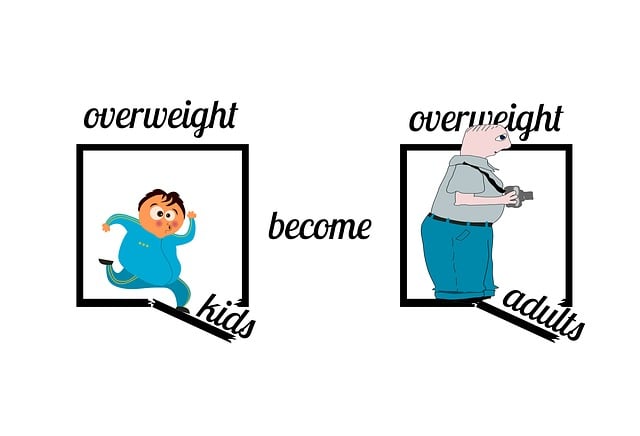Ozempic, a prescription medication primarily used for type 2 diabetes, has emerged as a powerful tool for weight loss. By mimicking a natural hunger hormone and slowing gastric emptying, it increases feelings of fullness, reduces hunger pangs, and lowers calorie intake. Clinical trials show significant weight loss and improved health markers. Combined with diet and exercise, Ozempic offers a holistic approach to weight management with long-term benefits like healthier eating habits and reduced obesity-related health risks. Potential side effects include nausea, diarrhea, and stomach pain, requiring professional monitoring. Real-life success stories highlight its effectiveness in achieving substantial weight loss and hunger management.
Discover how Ozempic, a groundbreaking medication, is transforming weight loss journeys. This article delves into the science behind its effectiveness in reducing hunger and calorie intake. Learn how Ozempic works to suppress appetites, the proven mechanisms behind its calorie-reducing properties, and its role in long-term weight management. Explore practical tips for incorporating Ozempic into your weight loss plan, along with real-life success stories and essential precautions.
Understanding Ozempic and its Role in Weight Loss

Ozempic, a prescription medication designed primarily for type 2 diabetes management, has emerged as a powerful tool in the realm of weight loss. Its active ingredient, semaglutide, mimics a natural hormone that regulates hunger and digestion. By mimicking this process, Ozempic effectively reduces hunger pangs and calorie intake, two crucial factors in achieving sustainable weight loss.
This medication works by slowing down gastric emptying, which makes you feel fuller for longer periods. This delay in digestion not only curbs excessive eating but also helps in better blood sugar control, making it a dual-benefit solution. In clinical trials, Ozempic has demonstrated remarkable results, with many participants experiencing significant weight loss and improved overall health markers. Its ability to provide lasting satiety makes it a game-changer for folks looking to manage their weight effectively.
How Ozempic Works to Reduce Hunger

Ozempic, a prescription medication designed for diabetes management, has emerged as a powerful tool in the quest for weight loss. Its active ingredient, semaglutide, mimics a natural hormone that plays a crucial role in regulating hunger and blood sugar levels. By imitating this hormone’s effects, Ozempic helps to reduce feelings of hunger, leading to decreased calorie intake.
This medication works by slowing down the rate at which the stomach empties its contents into the small intestine, resulting in increased feelings of fullness. This delay tricks the brain into thinking that the stomach is fuller than it actually is, reducing the urge to overeat. Consequently, individuals taking Ozempic for weight loss often experience a significant decrease in their overall calorie intake, a key factor in achieving and maintaining a healthier body weight.
The Science Behind Its Calorie-Reducing Effects

The science behind Ozempic’s calorie-reducing effects is multifaceted. This medication, a type of glucagon-like peptide-1 (GLP-1) receptor agonist, mimics the natural hormones in your body that regulate blood sugar levels after a meal. By activating these receptors, Ozempic increases feelings of fullness and satiety, leading to reduced hunger pangs. This mechanism not only helps individuals make healthier food choices but also reduces overall calorie intake naturally.
Additionally, Ozempic slows down the rate at which your stomach empties, allowing you to feel full for longer periods. This delay in gastric emptying further contributes to a decrease in calorie consumption. Research has shown that GLP-1 receptor agonists like Ozempic can lead to significant weight loss when used as part of a comprehensive weight management program, including diet and exercise.
Incorporating Ozempic into a Weight Loss Plan

Ozempic, a prescription medication designed for type 2 diabetes management, has emerged as a powerful tool in the quest for effective weight loss. Its primary function is to regulate blood sugar levels, but its effects extend beyond this role. By mimicking the hormone GLP-1, Ozempic slows gastric emptying, leading to increased feelings of fullness and reduced hunger pangs. This simple yet effective mechanism can significantly influence calorie intake, making it an appealing addition to any well-rounded weight loss plan.
Incorporating Ozempic into your routine doesn’t mean a drastic overhaul; instead, it offers a strategic approach. Many healthcare professionals recommend using it in conjunction with a balanced diet and regular exercise. The medication’s ability to curb cravings can make it easier to stick to nutritional goals, while its blood sugar-regulating properties ensure a more stable energy level throughout the day. This combination can lead to a more sustainable weight loss journey, making Ozempic for weight loss a promising option for those seeking long-term results.
Potential Benefits for Long-Term Weight Management

The long-term benefits of Ozempic for weight loss extend far beyond short-term results. Regular use can help individuals develop healthier eating habits and a more mindful approach to food, leading to sustained weight management over time. By effectively reducing hunger and calorie intake, Ozempic enables people to make better dietary choices and stick to them, fostering a positive cycle of healthy eating.
Additionally, it can help lower the risk of various health issues associated with obesity, such as type 2 diabetes, heart disease, and high blood pressure. This not only improves overall well-being but also reduces the need for more intensive interventions or treatments in the future. Incorporating Ozempic into a comprehensive weight management plan can be a game-changer for long-term success.
Exploring Side Effects and Precautions

When considering Ozempic for weight loss, it’s crucial to explore its side effects and precautions. Like any medication or supplement designed for weight management, Ozempic isn’t without potential drawbacks. Common side effects include nausea, diarrhea, and stomach pain, though these often subside as your body adjusts. More serious but rare reactions may occur, such as pancreatitis or thyroid issues. It’s important to disclose all medical history with your healthcare provider before starting Ozempic to mitigate risks.
Additionally, careful consideration should be given to the medication’s interaction with other drugs and its effect on pregnant or breastfeeding individuals. Since Ozempic influences insulin levels, it may not be suitable for everyone, particularly those with a history of low blood sugar or diabetes complications. Regular monitoring by a healthcare professional is essential during treatment with Ozempic to ensure safety and efficacy in achieving weight loss goals.
Real-Life Success Stories: Ozempic Transformations

Many real-life success stories highlight the transformative power of Ozempic in achieving significant weight loss and managing hunger effectively. Individuals who have incorporated Ozempic into their weight loss journeys report remarkable results, often losing a substantial amount of weight over time. This medication has been a game-changer for many, helping them break free from the cycle of excessive eating and cravings.
These success stories showcase how Ozempic can lead to calorie intake reduction without significant effort. Users report feeling fuller for longer periods, which naturally reduces their overall caloric consumption. As a result, they experience easy weight loss and maintain a healthier lifestyle. These positive transformations inspire others to consider Ozempic as a potential tool in their weight loss arsenal, providing hope and encouragement for those striving for a healthier future.
